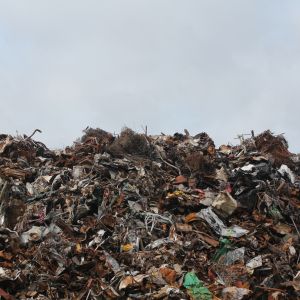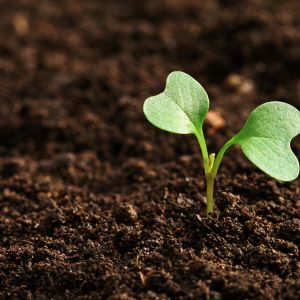Compost, often hailed as ‘black gold’ or ‘garden gold,’ is a remarkable creation born from the transformation of organic matter into a rich, dark, and nutrient-rich soil. This versatile substance serves as mulch, fertilizer, and soil conditioner, lending a helping hand to your garden’s vitality.
Producing compost is akin to orchestrating nature’s symphony, as beneficial bacteria meticulously break down food scraps, garden waste, and other organics into essential building blocks. While nature performs this magic daily, embarking on your composting journey at home puts you in control, enhancing both the process and outcomes.
Now, you might be wondering, why is compost so vital for your plants, what’s it composed of, and can you truly create it right in your kitchen? We’re here to demystify these questions, equipping you with the knowledge and benefits that can transform your lawn and garden.
Meet Compost: Nature’s Gold

Compost, the celebrated ‘black gold’ or ‘garden gold,’ is a crumbly, dark, humus-like soil teeming with organic matter and nutrients gleaned from the decomposition of food and garden waste. This remarkable transformation process is aptly called composting, as it leverages beneficial soil organisms to convert organics into the building blocks of life.
Gardeners and lawn enthusiasts treasure compost, using it as mulch, topsoil, and soil conditioner to nurture plant growth and enhance crop yields.
Creating homemade compost is far simpler than you might imagine. Whether you choose an outdoor setup under the shade of a backyard tree or an indoor compost bin tucked beneath your kitchen sink, on a balcony, or in a basement, the possibilities are endless.
The timeline for converting food and yard waste into nutrient-rich compost varies depending on your chosen method, ranging from as little as three weeks to a year.
You might wonder, with readily available fertilizers on the market, why take the composting route? The answer lies in the simplicity of composting, which can be embraced by novices and seasoned gardeners alike. It’s a natural, organic approach with astounding benefits for your garden, lawn, and the environment.
Harvesting the Rewards of Homemade Compost
When put to good use, compost yields remarkable benefits for your soil, plants, and crops, making a compelling case for starting your compost pile today:
Soil Texture Enhancement: Compost introduces vital organic matter to soil, addressing deficiencies often found in synthetic fertilizers. This infusion enhances soil texture, increasing water retention capacity and aiding plants in drought resistance. Research reveals that a mere 1% increase in organic matter can boost soil’s water-holding ability by up to 20,000 gallons per acre, a game-changer for regions grappling with drought, like Orchard Park NY, East Aurora NY, Hamburg NY, West Seneca NY, and Elma NY.
Microbial Harmony: Carbon-rich compost lingers in the soil, acting as a food source for beneficial microorganisms in your garden and lawn. Earthworms, for instance, thrive on compost, enhancing soil aeration, drainage, and erosion control.
Nutrient Abundance: Unlike synthetic fertilizers, compost boasts an array of trace minerals in addition to the core nutrients (nitrogen, phosphorus, and potassium). Calcium, iron, magnesium, manganese, zinc, and other essential minerals contribute to robust plant growth. Combatting issues like iron chlorosis in your lawn becomes a breeze with compost.

pH Balance: Soil pH imbalances can negatively impact your lawn, flowers, vegetables, or trees. Adjusting pH levels with lime and sulfur can be tricky, best left to professionals. However, compost comes to the rescue, thanks to its organic matter serving as a natural pH buffer, gradually normalizing overly acidic or alkaline soils while preventing rapid pH fluctuations.
Taming Food Waste: Studies reveal that the average American family of four discards roughly $1,600 worth of food annually. Instead of squandering these resources, divert kitchen scraps toward crafting natural, organic compost, a magical elixir for your lawn, ornamentals, indoor plants, and crops.
Cost-Efficiency: Food and garden waste make up nearly 30% of annual waste. By composting, you can trim waste disposal expenses and potentially reduce your monthly cart fees. Set aside fruit cores, peels, vegetable scraps, and aged produce, transforming them into a natural fertilizer for your garden or potted plants.
Environmental Stewardship: Food and garden waste in landfills undergo anaerobic decomposition, emitting methane—a potent greenhouse gas responsible for climate change. In contrast, home composting promotes aerobic decomposition with minimal methane emissions, championing environmental preservation.
In summary, composting is a win-win proposition for your garden, finances, and the planet. Embrace this sustainable practice to nurture healthier plants and contribute to a greener, more vibrant world!
